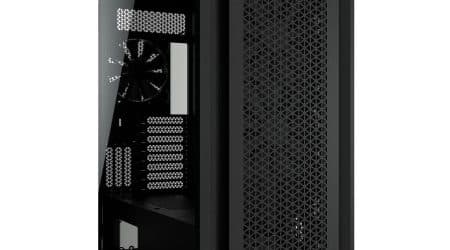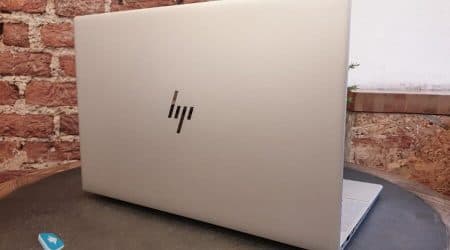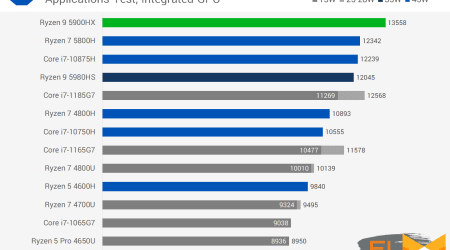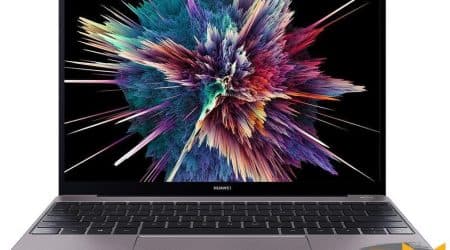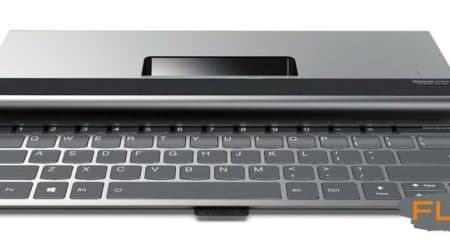


The high-pitched hum or roaring sound that emanates from your laptop can often elicit both surprise and frustration. Resembling the noise produced by a jet plane in motion, this intimidating racket can impact not only your devices performance but also its longevity. Before you can attempt to address the issue, it’s crucial to understand the possible factors that could be creating this cacophony.
Routinely, the primary suspect behind a noisy laptop is often its cooling fan. The demanding tasks we execute on our device like running multiple apps, editing high-resolution videos or playing graphics-heavy games, can make the processor work on overdrive. This process generates heat, prompting the cooling fan to speed up and thus, make more noise. Elsewhere, it could be an underlying issue like a failing hard drive or even misplaced components within the laptop.
Experts suggest several strategies to fix this issue that range from cleaning the laptop internals to reinstalling the noisy fan or even upgrading the entire system. This article aims to dissect the possible causes behind that overwhelming noise from your laptop and guide you through some simple yet effective ways to quieten your hardworking machine. Ignoring these warning sounds can lead to dire consequences for your device.
Comprehending Why Your Portable Computer Echos a Turbofan
It can be worrisome when your notebook mimics the sound of an airliner taking off. Understanding the underlying reasons can help users pinpoint where problems lie, and subsequently address them to ensure the device works optimally and the noise is minimized.
Common Culprits behind the Aeronautical Acoustics
One major cause could be attributed to an overworked cooling system, mainly the fan. Your laptop has a series of internal fans designed to cool down the heating components, especially when engaged in demanding tasks, such as playing graphics-intensive games or running multiple applications simultaneously. If these components get too warm, the fans need to spin faster and therefore become noisier, resembling the sound of a jet turbine.
Another prevalent issue is a build-up of dust and dirt inside the device. Over time, as dust collects on the internal components and clogs up the ventilation grills, the system has to work harder, and hence louder, to expel heat effectively.
In some cases, loud noises can also indicate a hardware malfunction. A faulty hard drive, for instance, can cause disturbing sounds, as can a problematic fan.
- Overworked Cooling System
- Dirt and Dust Build-up
- Hardware Malfunction
It’s also worth noting that older laptops are likely to be noisier than their newer counterparts due to wear and tear. Over time, the thermal paste that helps conduct heat away from the processor to the heatsink may degrade, impairing the cooling efficiency and leading to an overactive and noisy fan.
Identifying the Indications of a Noisy Laptop
When your portable computer begins to make loud noises, it can be unsettling. There are several signs to pinpoint the cause of this acoustical disruption, which often indicate an underlying issue that needs to be addressed to restore quiet operation.
Excessive Fan Noise During Ordinary Usage
Under normal circumstances, your laptop’s fan spins silently in the background. However, if the fan noise becomes distinctly audible and persistent during everyday tasks like word processing or web browsing, it’s a symptom that the fan is working harder than it should. This could be due to overheating, a clogged ventilation system, or other hardware problems.
Sudden Increase in Noises
While small amounts of noise are typical, a sudden and noticeable increase can be a sign of something more severe. If the noise escalates to a high-pitched whirring, whistling or humming sounds, it’s potentially indicating a serious issue with the internal hardware such as hard disk or cooling fan failure.
Regular Start-up or Shutdown Noises
Another sign of a loud laptop is the excessive noise during startup or shutdown. The sound of your computer starting up can be louder than usual due to the initial spin-up of the fans and hard drives. But, if these sounds persist even when your laptop is in idle mode or shutting down, it could be due to software or hardware issues needing attention.
- Loud Clicking Sounds: A hard drives wear-and-tear can cause this issue. If not addressed, it can lead to data loss.
- Constant Grinding Noises: If your laptop consistently produces a grinding or rattling sound, it might mean the fan’s mechanism is worn out, dirty, or broken.
A noisy laptop is not just disruptive; it’s often a symptom of a deeper issue. Understanding what these sounds mean and addressing these problems quickly can prevent further damage, extend your computers lifespan, and bring peace back to your computing experience.
Deciphering the Reasons Behind a Boisterous Laptop
Laptops, like any other machinery, have the potential to produce a racket under specific conditions. To fix the issue, it is crucial to identify what might be triggering your notebook computer to mimic the sounds of a booming jet. When your conveniently portable computer starts generating distracting noises, the culprit could be one or more of the following.
Hard Drive
A typical perpetrator of grating noise is a failing hard drive. As one of the most mechanically active components, the hard drive is responsible for storing and retrieving digital information. When the components start to wear down, especially the spindle and bearings, a grinding sound may be produced which can grow louder over time.
Overworking Fans
If your laptop suddenly sounds like it’s about to take off, chances are the cooling fans are working tirelessly to dissipate heat. This generally occurs when your system resources are significantly occupied by power-hungry applications or processes. In more severe cases, dirt and dust can clog the air vents, causing your fans to whir at a punishing pace contributing to the turbulence.
Optical Drive
Though becoming less common due to the dependency on cloud storage and USB drives, the optical drive can also instigate a racket. The spinning of a bent or unbalanced disk can create a buzzing noise, similar to a hummingbird.
Motherboard
The motherboard is responsible for coordinating the communication between all the laptops components. While not typically a noise-making culprit, capacitors or voltage regulation modules can, on rare occasions, cause high pitched whining or buzzing sounds if they begin to fail.
Furthermore, even small things like a loose screw or a displaced component can create an auditory nuisance. As such, when you start hearing, what seems like a mini airbus inside your laptop, it’s time to initiate some troubleshooting.
Impact of Accumulated Dust and Grime on the Noise Emanated by Your Portable Computer
Have you ever noticed unusually high levels of noise coming from your laptop, similar to the sounds created by a turbine engine? Accumulated dust and grime could be the culprits behind such issues. Let’s delve deeper into how a dusty environment can impact your laptop’s noise levels.
Dust and grime can easily accumulate in your laptop’s ventilation systems and on the cooling fan. When these elements mix with the inherent heat produced by your computer’s working parts, they harden and clog the pathways intended for air circulation. This hinders optimal functionality, leading to the cooling fan working harder, hence producing more noise.
How Dust and Grime Induce Higher Noise Levels in Your Laptop
Primarily, dust and grime enter your laptop through its vents. Consequently, dust and grime diminish the cooling efficiency by creating a layer of insulation which hampers heat dissipation. This can cause a surge in the operational temperatures of a laptop, prompting its inbuilt cooling system to work more aggressively to control overheating. This essentially results in increased fan speed, which inherently causes your computer to operate louder, resembling the sounds produced by an aircraft’s engine.
Furthermore, persistent overheating issues may degrade the performance of delicate electrical components inscribed in your laptop, thus introducing more complications in addition to the unusual noise it generates.
- Performance Degradation: Continual overheating due to dust accumulation can lead to noticeable sluggishness in performace and even permanent damage to vital components like the processor.
- Compromised Battery Life: Overheating also places an excessive load on the battery, causing it to discharge at a much faster rate.
- Noisy Operation: As mentioned earlier, the cooling fans spin at a higher rpm to counteract the heat resulting in a noisy operation similar to a jet engine.
In conclusion, a clean laptop is not only silent but also more efficient and longer lasting. Regular cleaning of vents and fans can significantly reduce the noise levels, extending the overall lifespan of your portable computer.
The Connection Between Your Laptop’s Temperature and Its Noise Levels
One typical situation that many laptop owners experience is the device making a roaring noise resembling a jet engine. This usually indicates that your laptop’s internal components are getting excessively warm. So, why does a hot laptop often manifest in a humming sound?
The Role of Fans
The cooling fan inside your laptop is designed to regulate the internal temperature by forcing cool air onto hot surfaces such as the processor and graphics card. It’s a similar system to the radiator in a car. Normally, as the laptop carries out its processes, it generates heat which, in turn, causes the fan to rotate at a faster speed to keep it cool. As the speed of the fan increases, so too does the noise it produces.
Excessive Heat: An Accelerant
When a laptop is working harder than usual or the environmental conditions are particularly hot, the internal components can generate excessive heat. This causes the fan to work overtime in an attempt to cool the device down. As the fan starts to spin at an extremely high speed, it often results in that jet engine-like noise.
Additionally, when dust and debris build up in the system, they can obstruct the airflow, forcing the fan to work harder and thus increase the noise. In some cases, it could also trigger the laptop’s internal safety mechanisms, causing it to shut down unexpectedly.
- An overheating laptop is noisy.
- Fans work harder to cool the overheated device, producing more noise.
- Dirt and debris can obstruct the airflow, causing more noise.
Ensuring Your Laptop Stays Cool and Quiet
Regular cleaning of internal components and ensuring the laptop is used in a cool, dry environment can help reduce the risk of overheating and, consequently, the noise it generates. Utilizing a laptop cooling pad or a stand can also help improve the device’s ventilation, letting the fan work less intensively. Regular software maintenance is also advisable, as it decreases the load on the processor, further helping in cooling and reducing noise.
The Impact of Malicious Software on the Amplified Noise Production of Laptops
Often unnoticed, harmful software or malicious software plays an acute role in intensifying the noise levels of personal computers, specifically laptops. This unexpected increase in noise, commonly referred to as your laptop mimicking a ‘jet engine,’ is not trivial. Instead, it highlights a serious underlying issue that should be addressed promptly.
Kinship of Elevated Laptop Noise with Malicious Software
Malicious software otherwise known as malware can take a toll on your laptop’s functionality. This harmful software is meticulously designed to infiltrate and damage computer systems, often causing laptops to work harder and, in turn, produce increased noise levels. Typically, malware is installed covertly, which implies users might be unaware of its existence until symptoms become noticeable.
The principle behind the racket is relatively straightforward. Malware consumes an excessive amount of system resources, forcing the laptop’s processor to work harder. The amplified processor load generates more heat, leading to the laptop’s cooling system (typically the fan) working overtime to prevent overheating. Consequently, this results in increased sound production, reminiscent of a jet engine’s loud noise.
- Impact on System Resources: Malware strains are notorious for consuming vast system resources, causing the processor to exert itself, hence producing more heat.
- Consequences for the Cooling System: To maintain an optimum temperature, the fan needs to work harder to dissipate the excess heat, culminating in the amplification of the sound of the laptop.
Addressing this issue begins by scanning for the presence of malicious software. Various anti-malware software is available that can detect and eliminate these harmful entities. Updating your operating system regularly also introduces newer security features that can combat malware attacks more effectively. Ultimately, managing the risk of malware attacks will preserve your laptop’s optimal functionality and lower sound emission, creating a quieter computing experience.
Digging Deeper into How Issues with Hardware Components can Lead to Noise in Laptops
Some laptop users might be familiar with the problem of a noisy laptop. In fact, it may become so loud that it reminds you of the sound of a jet engine taking off. Hardware defects or malfunctions can be a major contributing factor to this irritating and distracting sound. Let’s explore further.
1. Reasons associated with Cooling Fans
Fan issues are one of the most common causes of laptop noise. Typically, as your computer works hard to run heavy applications, its internal temperature rises. To counteract this heat, your computer’s fan comes into play. However, if the fan becomes dirty over time, it may struggle to cool the laptop effectively, resulting in unusual and loud noises.
Fan malfunctioning is another potential issue. If the fan’s bearings are worn out or damaged, the fan won’t spin smoothly, causing it to make a loud whirring or buzzing noise. Ensuring that the fans are cleaned regularly and replaced as required, can significantly reduce this noise.
2. Problems with the Hard Drive
In most traditional laptops, the hard drive is a mechanical device with moving parts. Over time, these parts can wear down or malfunction, leading to noise. If you notice a loud clicking or grinding noise, especially while accessing files or starting up, it’s likely your hard drive is failing. One solution to this issue could be switching to more quiet, reliable, and faster Solid-State Drives (SSDs).
3. Other Hardware Issues
Other internal hardware components such as the power supply or graphics card can also cause a laptop to become noisy. In these cases, the hardware may need to be replaced or upgraded to quell the noise. However, if the noise persists despite these measures, it would be advisable to consult a computer hardware technician for a more thorough diagnosis and repair.
Examining the High Audible Levels from Laptop Cooling Systems
Laptops are complex gadgets with several components working together to provide a seamless user experience. However, when internal components like the cooling fans produce high levels of noise, it points to underlying issues that could potentially harm the laptop functionality. We’ll delve into reasons why your portable computer might be emitting sounds akin to a commercial aircraft in full throttle, and recommend ways of mitigating this issue.
Situations Leading to Elevated Sound Emission by Laptop Cooling Systems
The primary culprit behind the roaring sounds from your computer are often the cooling fans. These components have the responsibility of keeping your computer’s internal temperature at a safe level by moving air across and out of the system. Here are some potential scenarios that may escalate the noise level:
- Dust Accumulation: Over time, dust and other particles can accumulate on the fan blades. This build-up can cause the fan to work harder to maintain optimum temperatures, leading to increased noise.
- Software Burden: When your computers processor is overburdened by multiple heavy applications or services running simultaneously, it generates more heat. Consequently, the cooling fans would need to spin faster, creating more noise.
- Fan Faulty: Mechanical problems, such as worn-out components, can reduce the fans efficiency, causing it to run at maximum speed to cool the system, thus resulting in more noise.
Regardless of the reasons, it’s crucial to address this elevated noise production, not only for your peace of mind but to ensure the longevity and performance of your laptop. Here are a few solutions to consider:
- Regular Cleaning: Regularly cleaning the fans can help keep dust accumulation at bay. Make sure your laptop is switched off and unplugged before you start cleaning.
- Manage Background Applications: Minimise the number of heavy applications and services running at the same time. When fewer processes are taxing the CPU, it heats less, so the fans don’t have to work as hard.
- Service or Replace the Fan: If noise persists despite regular cleaning and software management, a service or fan replacement might be necessary. It’s recommended to use an experts assistance in this case to prevent any accidental damage.
Remember, it’s normal for your laptop to make some operational noise, especially when performing intensive tasks. However, excessive noise might indicate a problem that needs immediate attention to prevent overheating and potential damage to your laptop.
The Role of Malfunctioning Components in Causing a Laptop to Produce Extreme Noise
Often, a laptop sounding akin to a jumbo jet can be a result of defective components. Among these can be the cooling fan, hard drive, or even the graphics card. These worn-out parts can not only lead to an excessive hum, but they may also affect your laptops performance. Lets delve deeper into these causes.
The Cooling Fan:
A faulty cooling fan is among the most common reasons why a laptop may sound as loud as a jet engine. Its primary role is to prevent overheating by dissipating the heat produced by the machine. However, over time, dust buildup and wear can cause the fan to malfunction, producing an unusually loud noise or working at full speed continuously This is not normal. Regular cleaning can greatly extend the lifespan of your cooling fan and keep it operating quietly.
The Hard Drive:
An aging hard drive can be another culprit of a laptop’s high noise level. Hard drives can wear out over time, causing the laptop to make a loud whirring or clicking noise. When your hard drive starts to fail, backing up your data and replacing the hard drive should be a priority to avoid losing important information.
The GPU (Graphics Processing Unit):
The Graphics Processing Unit can also be a source of unwelcome noise. High-end laptops meant for gaming or other intensive graphic tasks feature potent GPUs that can also produce substantial noise when under stress. Keeping your software updated, ensuring good ventilation, and avoiding leaving heavy applications running when they’re not in use can mitigate this issue.
- Regular cleaning can greatly extend the lifespan of your cooling fan and keep it operating quietly.
- Backing up your data and replacing your hard drive in case it starts to fail is advisable.
- Keep your software updated and avoid leaving heavy applications running when they’re not in use.
Proven Strategies to Quieten a Roaring Laptop
Regular Cleaning
One of the primary reasons your laptop might produce a noise resembling an airliner taking off could be the dust accumulation. As dust builds up in the vents and the cooling fan, it restricts the flow of air, causing the fan to work harder and generate more noise. Regular cleaning will help you to address this issue. Keeping the vents clean ensures that the fan doesn’t have to run at high speed, which in turn reduces noise. You can easily do this by blowing compressed air into the vents to dislodge dust particles. Also, wipe down the exterior to prevent particles from getting inside.
Replacing the Fan
Another useful measure is to replace the existing fan with a quieter one. Ageing fans can become increasingly loud over time, and investing in a newer, higher-quality fan can improve the situation significantly. Although this requires technical knowledge, many online tutorials are available to guide you through the process.
Adjust Fan Speeds
It’s worth adjusting your laptop’s fan speeds. Many laptops allow the users to control the fan speed, but do remember that slowing down the fans will cause the laptop to heat up more quickly, so if you decide to follow this route, monitor your laptops temperature to ensure it stays in the safe zone. Many software programs help manage fan speed without overheating your system.
Keep Laptop on Hard Surfaces
Ensure your laptop has sufficient airflow. When operating your device, avoid placing it on soft surfaces like a bed or a couch. These surfaces can block the laptop’s vents, causing it to heat up, leading to an escalation in fan speed, which increases the noise. Instead, use your laptop on a hard surface, or even better, a laptop cooling pad.
Note: If your laptop continues to sound like an airplane engine, consider seeking professional help. It’s possible that it may need in-depth cleaning or a motherboard replacement. Dealing with such problems isn’t impossible, but it should be handled carefully to prevent further issues.
Guidelines on Cleaning Your Laptop to Minimize Noise
Excessive noise from your laptop can be a real nuisance, especially if it reminds you of a plane taking off. A common culprit is dirt, dust, and debris buildup on fans and other components, which may result in a harder working laptop and consequently, more noise. But dont fret, here are some guidelines on effectively cleaning your laptop and reducing that bothersome noise.
Maintain a Clean Cooling System
A laptop’s cooling system greatly impacts its noise levels. Excess dust can block air vents and cause the fans to work constantly at high speed. Cleaning your laptop’s cooling system should be come a regular maintenance routine to help lessen the noise output.
-
Doing a quick cleanup: You can start by gently blowing air into the vents using a can of compressed air. Hold the can upright to avoid any liquid propellant from being sprayed onto the laptop. This quick cleanup can dislodge most of the dust.
-
Deeper Cleaning: For a more thorough cleaning, you will need to open your laptop. Remember to power off and unplug your laptop before starting. Use the can of compressed air to blow dust out of the internal components. A small soft-bristled brush can also help remove dust. Be very careful not to damage any of the delicate components.
After cleaning, be sure to place your laptop on a hard, flat surface to ensure proper ventilation. Avoid soft surfaces like blankets that can block airflow.
Keep your Laptop Clean Regularly
Keeping your laptop clean can effectively extend its lifespan and help keep noise to a minimum. Here are a some additional maintenance tips to consider:
- Effort should be made to keep the keyboard clean. This can be accomplished by using a small vacuum cleaner or a can of compressed air.
- Avoid eating or drinking around your laptop. Crumbs and spills can cause significant damage.
- Regularly clean your laptop’s screen with special cleaning solutions and microfiber cloth to avoid scratching.
With regular cleaning and maintenance, you can keep your laptop running smoothly and quietly, ensuring a more pleasant and productive workspace. So, say goodbye to that jet engine-like noise!
Expert Approaches to Resolve Laptop Noise Issues
When your laptop starts producing noises resembling an airplane taking off, it can be pretty disconcerting. The noises are not only distracting, but persistent sounds may also indicate an underlying problem. Here are some professional ways of dealing with a loud laptop issue.
1. Clean the cooling system
The leading reason why your laptop might be making loud noises is an obstructed or dirty cooling system. Dust and grime accumulation in the vents or the fans can cause the system to overheat, and the fan to run at full speed giving off the jet engine sound. To resolve this, a comprehensive and careful cleanup of the system is necessary. This could mean employing a compressed air duster to clear the vents or even disassembling the laptop to clean the fans.
2. Replace the laptop fan
A worn-out or faulty fan in your laptop could also be the culprit behind the noise. Over time, laptop fans can degrade, become noisy or stop functioning completely. When this happens, the best course of action is to replace the fan. This task should ideally be undertaken by a professional to avoid damaging other components of the laptop.
3. Consider fan control software
If cleaning or replacing the fan doesnt quieten your laptop, you can look into fan control software. This type of software allows you to control the fan speed manually and can help reduce the noise significantly. However, you need to ensure that you dont set the speed too low, as this could lead to overheating problems.
4. Upgrade the laptop hardware
Older laptop models can make more noise simply because of outdated hardware, which works harder than its modern counterparts. Therefore, upgrading your hardware can resolve this issue. This may include installing a larger Hard Drive Disk or a Solid-State Drive, which are known to operate more quietly and efficiently.
5. Seek professional assistance
Finally, if the above solutions are not effective, its probably time to bring your laptop to a professional. An IT expert or laptop technician can evaluate the problem accurately and propose the best solution.
By taking these steps, you are likely to reduce or stop the unwanted noise from your laptop, providing a quieter and more pleasant working environment.
FAQ Why does my laptop sound like a jet engine:
What are the likely causes of a noisy laptop?
There are several reasons why your laptop may be noisy. It could be due to a malfunctioning fan, hard drive issues, or it could be a sign that your laptop is overheating. Dust and debris trapped in your laptop can also produce noise as they obstruct the cooling system.
What professional solutions are available to reduce laptop noise?
Professionally, there are several ways to fix a noisy laptop, including cleaning the fans, replacing a faulty hard drive, upgrading your laptop’s cooling system, using laptop cooling pads, and controlling the fan speed with software.
How does cleaning the fans help reduce laptop noise?
Cleaning the fans can help smooth the airflow, reducing the load on the fans, which subsequently reduces the noise. Over time dust and debris build up and cause friction, which can lead to noise over time.
Is replacing the hard drive necessary for a noisy laptop?
If the hard drive is the source of the noise, then replacing it might be necessary. A loud or unusual noise from the hard drive could indicate a physical damage or failure that needs immediate attention.
How does upgrading the laptop’s cooling system reduce noise?
Upgrading the laptop’s cooling system can significantly reduce the noise by improving the heat dissipation and reducing the need for the fans to work so hard, which is often a source of noise.
Are laptop cooling pads effective in reducing laptop noise?
Yes, laptop cooling pads help to improve airflow around the laptop, cool the laptop more efficiently and reduce the need for the internal fans to work as hard, all of which can help to reduce noise.
